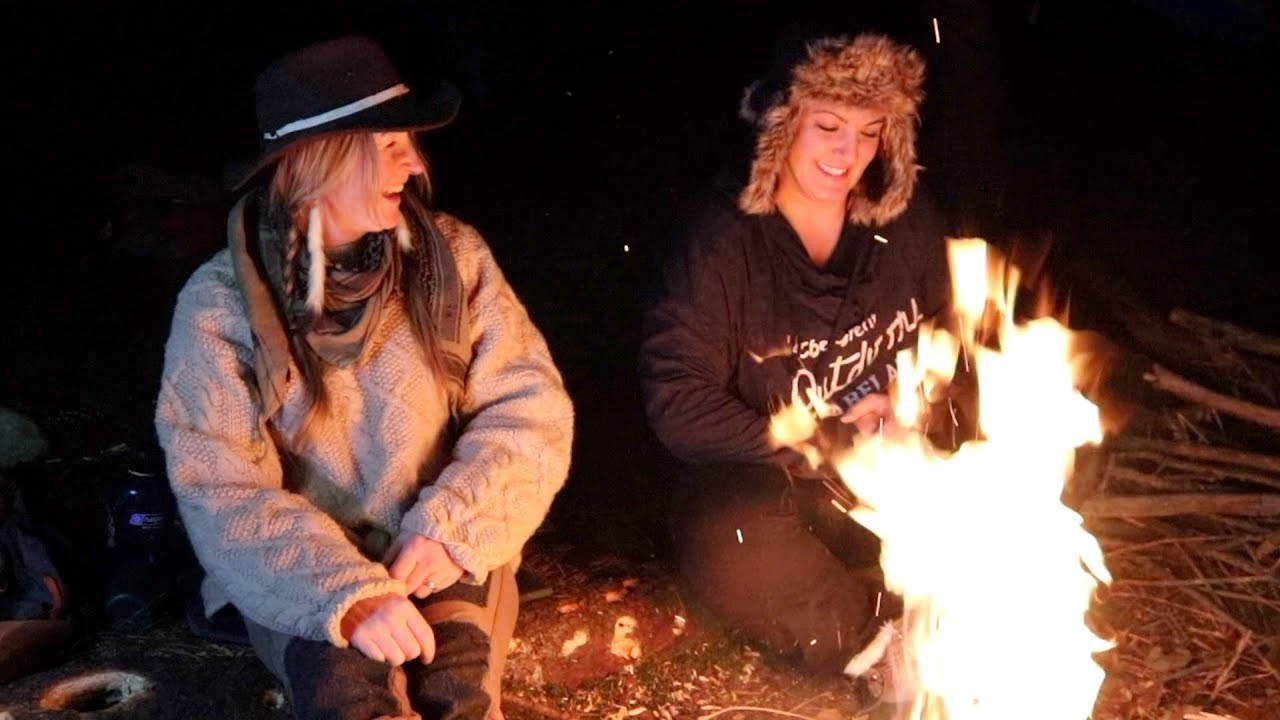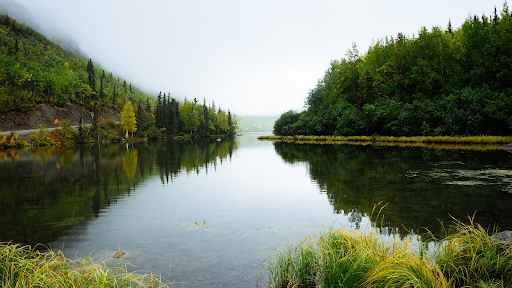September 23, 2019
Girls in the Woods

I think there is a hesitancy in wanting to send your daughter to the woods. Surviving in rugged conditions and backpacking between 2-8 miles a day with 30-45 lbs, for whatever reason, sounds like a far more intense ordeal for teenage girls than teenage boys. The wilderness experience, however, is particularly impactful for young women. Pooping in holes, farting unabashedly, successfully busting an ember and blowing it into flames, and completing grueling cross country hikes are all liberating and empowering experiences for the girls we work with. Being able to do things that are generally more expected of boys proves the fortitude and badass-ness of womanhood. Just by nature of the program, several societal norms of what it means to be an adolescent female are challenged.
Breaking Norms
Many of the girls who come to our program have adopted a sense of learned helplessness; they struggle to persevere through situations (both physical and emotional) that require hard work and problem-solving. They wait for the answers to be given and the problem to be solved for them. They often come from backgrounds where they have been enabled and rescued before being allowed to figure it out for themselves. We address this at Second Nature by encouraging our students to work through the problem first on their own, and if they are still having a hard time, spending a lot of time coaching and problem-solving alongside the student, as opposed to doing it for them.
Examples of this span from learning how to fit all their belongings into their backpack to completing their academic curriculum assignments to navigating an emotional interaction with a peer. A common mantra heard in the girl's groups is "I can't" and we try to clarify the actual translation of that statement as "I don't want to". The language we use in our self-talk is hugely important and that distinction between denying our capability and acknowledging that we simply don't want to do something is key.
When we tell ourselves that we are not capable enough, we do ourselves a disservice and never give ourselves the chance to accomplish. We begin to believe that we are not strong enough or smart enough to tackle the task at hand. When we admit that we don't want to do something, we realize it is a matter of will and perseverance - and we are fully capable and competent enough to do it, should we CHOOSE to.
Competence Grows
As girls progress through the program, we see an increase in willingness to problem solve on their own and in confidence in their own capability and competence.
As a former student myself, one of the more powerful aspects of the program was the opportunity to be a part of a sisterhood. The chance to experience such a raw, vulnerable, authentic, emotional connection with other girls my age was incredibly impactful.
As a teenage girl, there is a culture of tearing one's fellow teenage girls down and being torn down by others in a desperate attempt to build oneself up. Teenage girls can be competitive and vicious and friendships are often utilitarian in nature, be they to boost one's social status, gain entrance into more parties, or to become friends with their friends.
Our students come into the program often distrustful of other girls and their intentions. A common phrase we hear is "most of my friends are guys". At Second Nature, we draw awareness around competitive and comparative culture within the group and ask our students to examine where it comes from, how they contribute to it, and how we can replace it with a culture of unconditional love and support. Our young ladies learn what it means to have healthy and supportive relationships with their peers.
Removing the Labels

Another common theme we see in the clientele we work with is a difficulty maintaining firm boundaries and being assertive. Our students succumb to peer pressure and don't speak their minds for fear of being perceived as "mean” or “overbearing”. Asking for what they want is "too pushy". Refusing to engage in sexual or drug-related behavior is "too prude". Telling a peer that they feel offended by something that has been said is being "too sensitive". Conflict resolution pre-wilderness often looked like an aggressive confrontation followed by a falling out or passive aggressive comments eventually leading to a blow-up. Thus, learning how to communicate assertively and to directly ask for what they need or hold a boundary with their group mate can be one of the more difficult lessons for students. Our hope is that our young ladies can start to shake the shame associated with being direct that we culturally have placed on women.
Seeing Inner Strength
Girls come into our program limited by the beliefs their social circles have instilled within them around capability, self-worth and relationships. They are insecure and unsure and unassertive. The wilderness has a unique capacity to challenge these beliefs and begin the healing process. Through hiking and busting and the ups and downs that come with group living, our girls begin to foster a sense of self-confidence, self-respect, and community. They realize how resilient and tough and strong they really are


.jpg)

